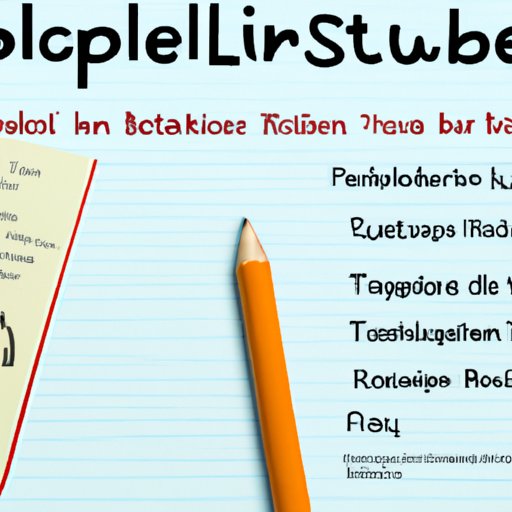Introduction
Substitute teaching is a great way for educators to gain experience in different learning environments and to earn an income. Whether you’re looking for a full-time job or just occasional work, being a substitute teacher can be very rewarding. It’s also a good way to get your foot in the door if you’re looking to pursue a career in education.
A substitute teacher is someone who fills in for a regular teacher when they are absent. They may be responsible for teaching classes, supervising students, and managing classrooms. In some cases, they may also be required to plan lessons and grade student work.
Research the Requirements
Before you can become a substitute teacher, you need to understand the qualifications and expectations of the job. The requirements vary by state and school district, but generally speaking, you’ll need to have a high school diploma or equivalent, as well as a valid teaching certificate. Depending on the district, you may also need to pass a criminal background check and/or provide proof of a TB test.
In addition to the above requirements, many schools expect substitute teachers to have knowledge of the subject matter they’ll be teaching, as well as basic classroom management skills. Some districts also require substitutes to have prior teaching experience or a college degree.
Prepare Your Lesson Plans
It’s important to be prepared when you’re substitute teaching. Before you walk into the classroom, it’s a good idea to create lesson plans that are appropriate for the age/grade level and subject matter. You should focus on engaging activities that will keep the students interested and learning.
When creating your lesson plans, you should also consider the needs of the students. It’s a good idea to include activities that cater to different learning styles, such as visual, auditory, and hands-on. Additionally, you should make sure to create objectives for each activity, so that students know what they should be able to accomplish by the end of the day.
Connect with Schools
Once you’re qualified to be a substitute teacher, the next step is to reach out to local schools and let them know you’re available. You can do this by calling the school’s main office or sending an email expressing your interest. Be sure to include your credentials and any previous teaching experience you might have. You can also ask about their hiring process and ask if there are any upcoming job openings.
You can also reach out to other teachers and administrators in the district to let them know you’re available. Ask if they know of any schools that are in need of a substitute teacher. Building relationships with people in the district will help you get more opportunities.
Build Your Network
Networking is key when it comes to becoming a successful substitute teacher. It’s important to connect with other teachers in the district, as well as administrators. This way, you can build relationships and get referrals for open positions.
You can also join online groups and forums for substitute teachers. These are great places to find job postings and get advice from experienced substitutes. Connecting with other teachers can also help you stay up-to-date on the latest trends in education.
Be Flexible
One of the most important qualities of a successful substitute teacher is flexibility. No two classrooms are the same, and you may be called upon to teach a variety of subjects in different grade levels. Being able to adapt to different learning environments is essential.
It’s also important to be able to adjust your lesson plans on the fly. You may need to modify activities to fit the needs of the students or change the content to meet the expectations of the school.
Follow Up
After each assignment, be sure to follow up with the school. Sending a thank you note or email is a great way to leave a positive impression. You should also ask for feedback so you can continue to improve as a substitute teacher.
Conclusion
Becoming a successful substitute teacher requires dedication, hard work, and commitment. You need to research the requirements, prepare engaging lesson plans, build relationships with other teachers, and be flexible in different learning environments. Additionally, it’s important to follow up after each assignment to ensure you’re leaving a positive impression. With the right attitude and preparation, you can be a successful substitute teacher.
(Note: Is this article not meeting your expectations? Do you have knowledge or insights to share? Unlock new opportunities and expand your reach by joining our authors team. Click Registration to join us and share your expertise with our readers.)
